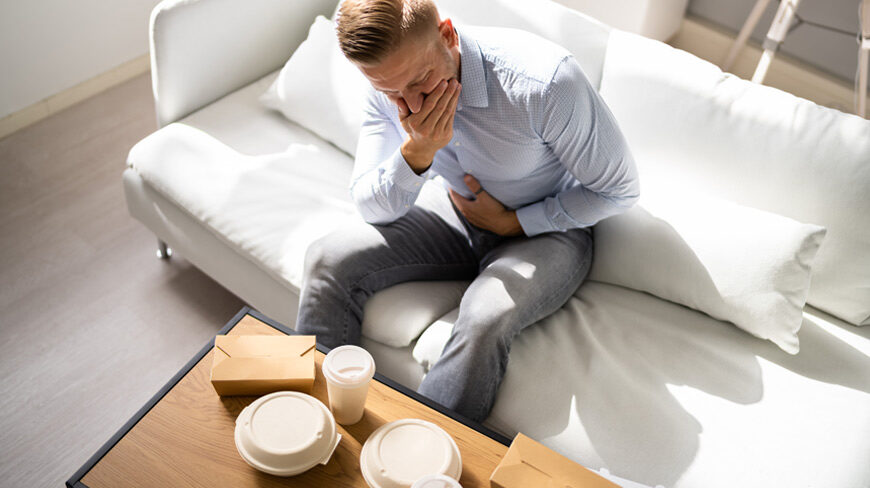Nausea After Eating: What You Should Know
Have you ever sat down to enjoy a delicious meal only to feel an unpleasant wave of nausea wash over you shortly after? If so, you’re not alone. Nausea after eating is a surprisingly common issue that plagues people of all ages. Whether it’s mild discomfort or a more severe reaction, the experience can be both frustrating and concerning. So, what causes this unsettling sensation, and what can you do to prevent it?
Common Triggers for Post-Meal Nausea
Nausea is a feeling of discomfort or unease in the stomach that can occur immediately after eating or after taking some time to develop. There are several reasons why you may experience nausea following a meal, including:
- Overeating. Consuming too much food can put pressure on the stomach and cause nausea.
- Food poisoning. Contaminated food can cause nausea, vomiting, and diarrhea.
- Gastroesophageal reflux disease (GERD). GERD occurs when stomach acid flows back into the esophagus, causing irritation and nausea following meals.
- Infections. Viral or bacterial infections such as the flu or gastroenteritis can trigger nausea, vomiting, and diarrhea.
- Food intolerance or allergy. Some people may experience symptoms after eating certain foods to which they are intolerant or allergic.
- Digestive issues. Digestive conditions, such as irritable bowel syndrome (IBS) or gastroparesis, can cause nausea.
- Other health conditions. Nausea after eating may be a symptom of other underlying health conditions, such as diabetes, kidney disease, or liver disease.
Symptoms of Nausea After Eating
After eating a meal, nausea can manifest in various ways, and its symptoms may differ depending on the individual and the underlying cause. In addition to nausea, several other symptoms may accompany feeling sick after eating, including:
- Vomiting or the urge to vomit
- Loss of appetite
- Dizziness or lightheadedness
- Sweating or clamminess
- Abdominal pain or cramping
- Diarrhea
Treatment for Nausea After Eating
The treatment approach to managing post-meal nausea will depend on the underlying cause of the issue. While some cases may resolve on their own without medical intervention, there are a few strategies for relieving nausea after eating:
- Staying hydrated. Drinking water or other fluids can help to prevent dehydration caused by vomiting or diarrhea.
- Avoiding triggers. If you know that certain foods or situations trigger your nausea, try to avoid them.
- Taking medications. Over-the-counter medications such as antacids, motion sickness, and anti-nausea medicines can help alleviate symptoms.
When to Seek Medical Attention
In some cases, post-meal nausea may indicate a more serious underlying condition. It is important to seek medical attention if you experience any of the following:
- Severe or persistent nausea and vomiting
- Abdominal pain or cramping that does not go away
- Blood in vomit or stool
- Signs of dehydration such as dry mouth, decreased urine output, dark-colored urine, and dizziness or lightheadedness
Take Control of Your Nausea Today
While nausea after a meal is usually not a cause for concern, it can be uncomfortable and disruptive to daily life. By making lifestyle changes such as eating smaller, more frequent meals and staying hydrated, you can help alleviate symptoms after eating.
However, if your symptoms persist or are accompanied by severe abdominal pain, blood in vomit or stool, or signs of dehydration, it is important to seek medical attention. Your doctor will help determine the underlying cause and develop an appropriate treatment plan. Call today to schedule an appointment.
Request Appointment
Related:


